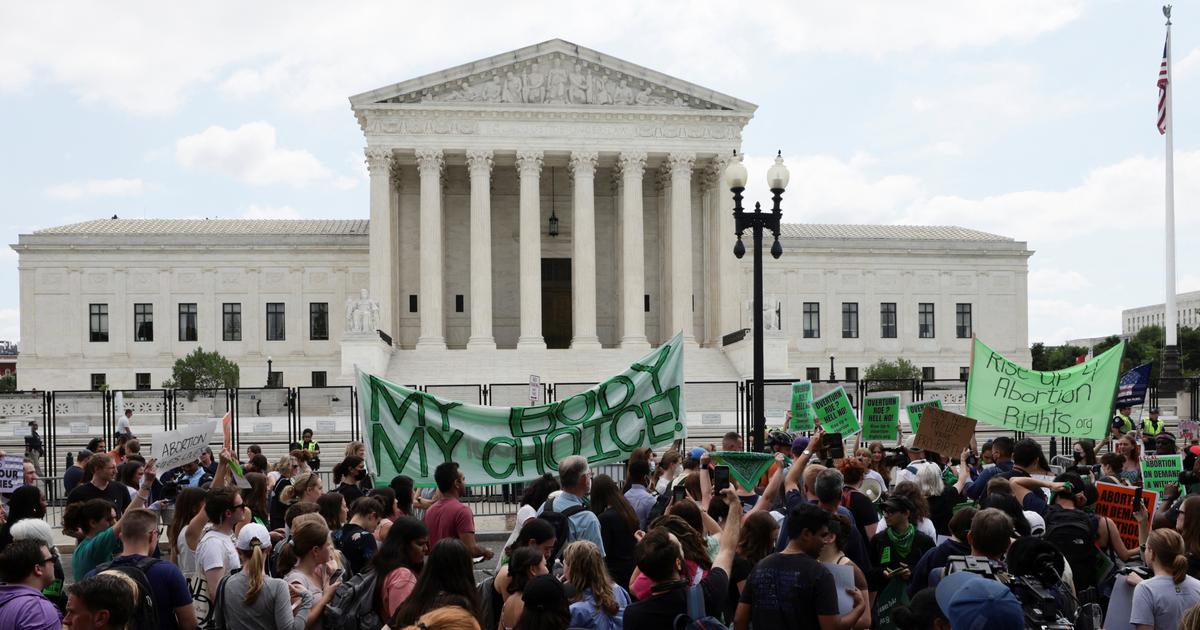André Kaspi is a historian, a recognized specialist in the United States, to which he has devoted numerous reference works. He has notably published
La Nation armee - Weapons at the heart of American culture
(Éditions de l'Observatoire, 2019).
FIGAROVOX. - The Supreme Court decided today to reverse the Roe vs. Wade decision which upheld the right to abortion. How can we explain that American society is still so divided on this question?
Andre Kaspi.
– American society has been divided on abortion since 1973. There has been opposition to Roe vs. Wade ever since it was issued.
Obviously this opposition has been more or less strong depending on the period, but it has never ceased.
It was strong in Reagan's time and still is today: there are still some Americans who have not accepted the right to abortion.
It should be noted, however, that this varies from state to state;
the judgment that has just been rendered was in relation to a Mississippi law.
On the other hand, the modalities of abortion also vary.
According to Roe vs. Wade, a woman can abort until the 28th or 29th week, while under the Mississippi law that was reviewed by the Supreme Court, a woman could abort until
at the 15th week;
Mississippi did not ban abortion.
It is important to remember that in France, the legal deadline for abortion is 14 weeks.
We are therefore in a situation which is completely different from the French situation, it is quite far from what one might imagine.
So it's not just about saying that Americans are for or against abortion, there are intermediate positions.
Basically, that's what the Supreme Court ruled on: it said that it was up to each state to decide.
She did not say that abortion was prohibited, but rather that abortion was not part of the interpretation that one can give to the federal Constitution.
This means that, for the Supreme Court, in a federal state, it is the responsibility of each of the states.
How to explain that opponents to abortion are so numerous and powerful in the United States?
Opponents of abortion are found mainly within the Republican electorate.
This Republican electorate is both inspired by the religious right and by an ideology that is at least conservative if not reactionary.
This is more or less obvious depending on the state.
If you live in the state of Texas or in the state of Florida, for example, it is not the same as the state of New York or Vermont.
It's a sentence that I used to say to my students: the United States is big, it's a vast territory of eight million km2, or 16 times the size of France.
So there can be extremely different attitudes according to the regions and according to the communities.
Limiting the right to abortion does not necessarily amount to prohibiting it;
Mississippi did not ban abortion.
André Kaspi
After this Supreme Court decision, how many states could actually restrict the right to abortion? Could they go for a total ban?
It is difficult to make predictions, historians are especially competent to predict the past.
However, I think that at least twenty out of fifty states will impose restrictions on the right to abortion.
Some may even go so far as to ban it.
All this will also depend on the reactions expressed by the voters;
they will have two opportunities to do so because there are legislative elections in November and, in 2024, there are legislative and presidential elections, which means that at that time, American opinion will be able to manifest itself, while taking into account that a whole section of public opinion does not vote.
All of this is very difficult to predict.
It is primarily the Republican states that are concerned, but especially the states in which the conservatives hold the majority: Florida, Texas, Mississippi, South Carolina and North Carolina for example.
It's completely different from California, where the trend is the opposite.
But once again, limiting the right to abortion does not necessarily amount to prohibiting it;
Mississippi did not ban abortion.
The Supreme Court's decision will, however, allow states to fully ban this practice (since the interview was conducted, Missouri and South Dakota announced that they would ban abortion, editor's note).
Can we imagine that women go to States authorizing this practice to have an abortion?
That poses another problem.
A woman who lives in a state where abortion is prohibited could indeed go to another state, but on condition that she finds a clinic that can perform the abortion, and that it is done within the legal time limits.
It should also be remembered that medicine is very expensive in the United States, so any intervention costs a lot, which can also limit the practice of abortion from one state to another.
This would still mean that, in this case, there would be two-speed abortions: there are abortions that are impossible for the poor, and abortions that are easier for the rich.
It is possible that women move according to the legislation, maybe some will, but the majority are unable to do so.
In any case,
In addition, in some states, such as Mississippi, clinics that performed abortions are closing.
If you limit the number of weeks during which abortion is allowed, it means that you will have fewer candidates for abortion.
On the other hand, we still have to recognize that authorizing abortion until the 28th week is completely contrary to the principles that we defend in France.
SEE ALSO
- United States: Missouri, "first" state to ban abortion, says its governor

